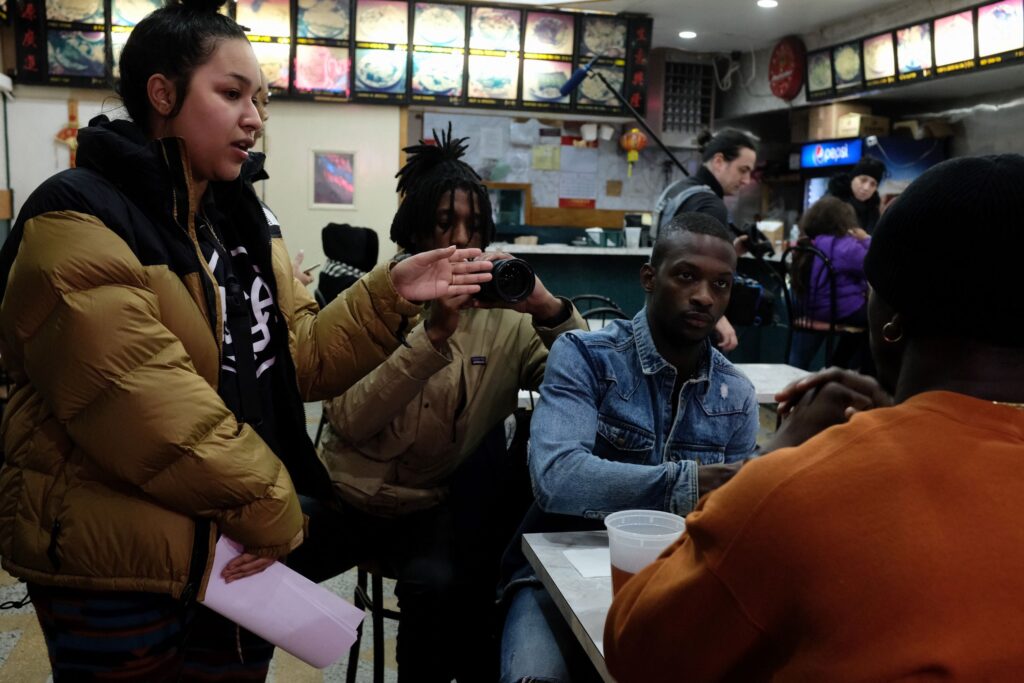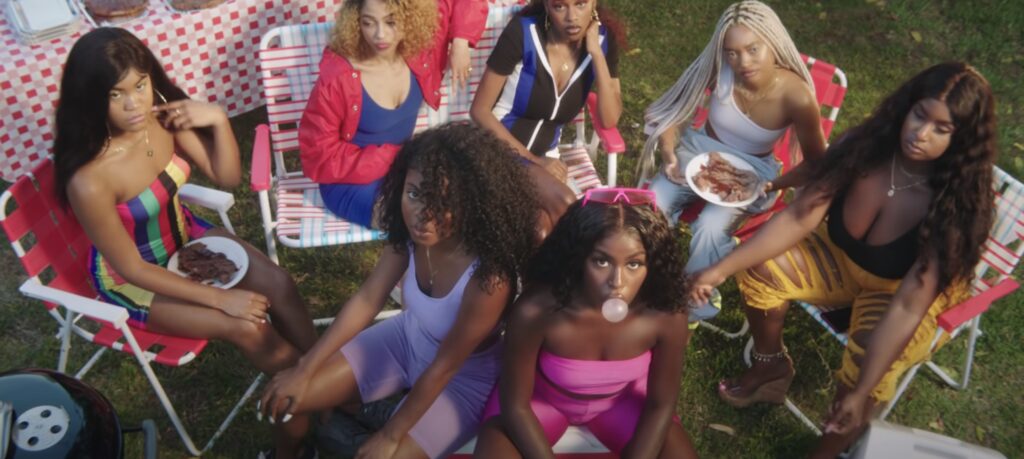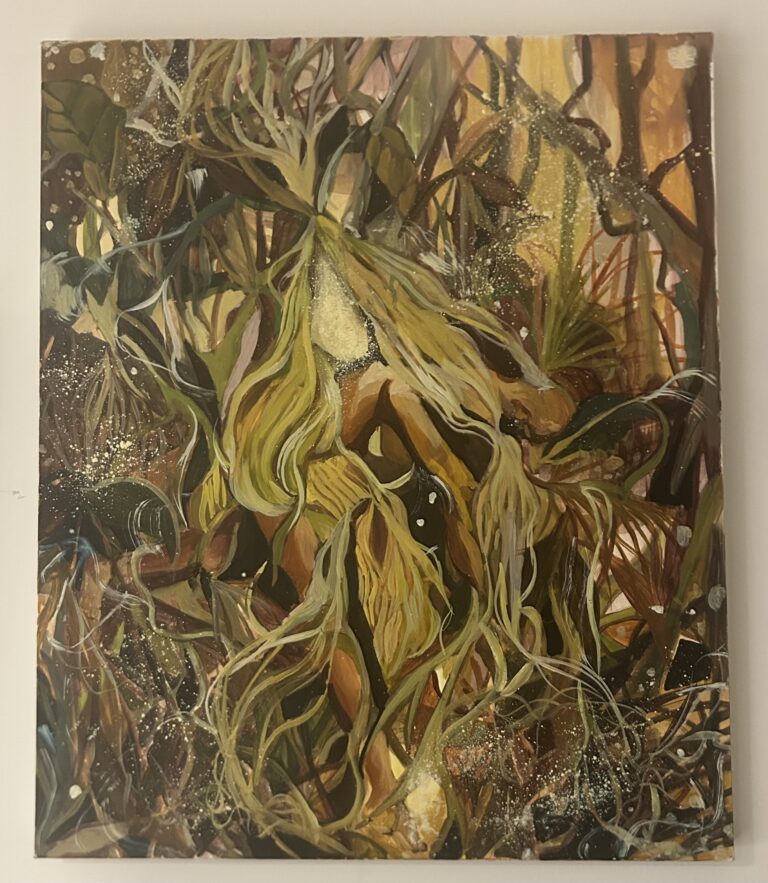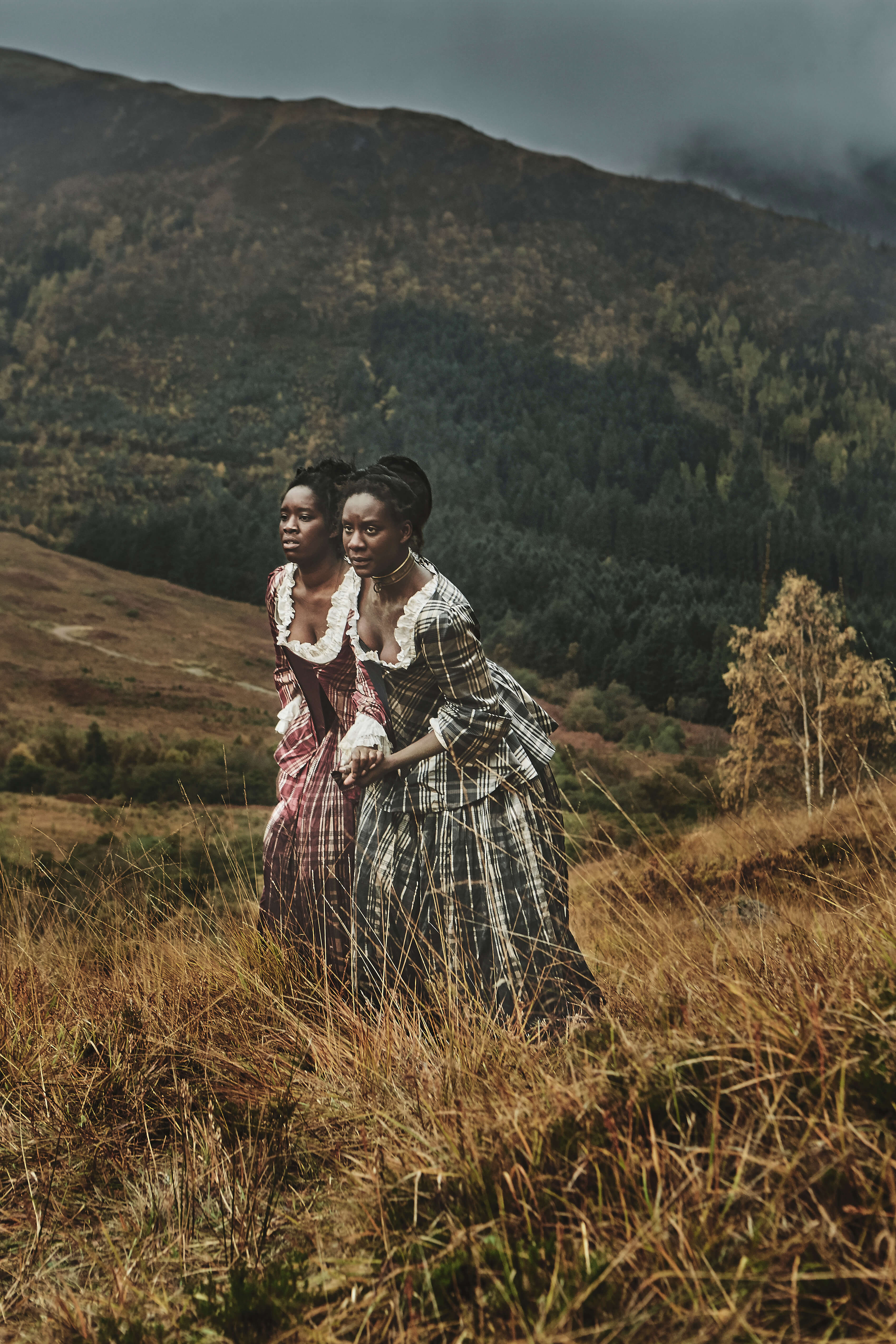Director Celeste Li is a creative at heart, but growing up in a working-class family where everyone had practical careers made a deep impression on her. In school, she studied marketing, and then she went to work for RCA records. Her big, artistic break there came a year ago when, at 25, she was tapped to direct a music video for the rapper Flo Milli, a newly signed artist. At the time, Li was working in an entry-level position at the label. She was not in the creative department, so the way that her pitch for the video was the one the artist chose was complicated.
When label hierarchy threatened to derail her chance to direct, Li quit her job to direct the video for “Beef Flomix.” The video went on to viral success, helping to further Flo Milli’s career, and Li was tapped to direct a second video, “In the Party” for the rapper. Combined, the videos have about 25 million views on YouTube alone. Li has since committed herself to learning more about filmmaking as a craft. She currently is in post-production on her first short film, One Fish Two Fish, and pre-production for her next short film, TMRW MOURNING.
April Dobbins (AD): Can you tell me a little bit about your background?
Celeste Li (CL): I was born and raised in Orange County, Calif. My dad is Black and my mom is Mexican. When I was really young, one of the things that I always wanted to do was to tell stories visually. No one in my family has taken the creative path. My family has always been very blue collar. So, I didn’t fully understand all the different artistic career paths. I moved to New York when I was 17 to attend St. John’s University. I love New York, so I stayed. Right now, I work at Mass Appeal Records. I just graduated from The New School, where I got my master’s in media studies with a focus on digital filmmaking.
AD: Film school can be challenging if you’re coming from a non-traditional background. How was it for you?
CL: As an undergrad, I studied marketing. Even now, my music job is in marketing. I remember when I first started the graduate film program, I called my sister [for advice], because most of the other students had film backgrounds. I thought, am I doing the right thing? Do I belong here? Ultimately, it worked out.
My overarching experience in New York is just having to develop my own network and figure things out as I go. I would say that it’s made me a lot more productive and challenged me in the right ways. I constantly have had to live outside of my comfort zone, so to speak.
AD:So, how do you go from working at a record company to directing music videos?
CL:After school, I worked at RCA, but even then, I was more attracted to the creative side of the work we did as opposed to the business side. At the label, Flo Milli put out a call for treatments for her new video. At that point, I knew I had to submit. I had to make it happen. Opportunities like this don’t happen often. I decided to shoot my shot and submit a treatment. Flo Milli really liked my idea and wanted to use it for “Beef FloMix.” Things got very real, very fast.
There were a lot of politics involved because I worked in the marketing department and labels have very, very rigid divisions. They don’t want marketing people crossing over into creative. They have a creative team. I was also relatively new. I had been with the label for a year, but I was a coordinator, which is an entry-level position. They were all like, who are you to contribute ideas?
AD:How did you handle the complicated politics?
CL: I just knew that directing would make a huge difference in my trajectory. So basically, I quit my job and flew out to LA to direct “Beef FloMix.” For the first video, you’ll see that I’m credited as creative director because the politics would not allow me a director credit, even though that was my role. A couple of months later, I directed the second video [and received director credit for], “In the Party,” for the same artist. Both of the videos performed very well. They have been great for her, which has been very exciting to see.

AD:Did you learn anything about yourself as a director?
CL: I knew from that process that I wanted to create more and have more control of the narrative. With music videos, there are a lot of cooks in the kitchen, so you can only have so much creative control. I’ve always had creative ideas, but I didn’t necessarily know how to articulate them before this.
Once I directed the videos, I knew that I could direct a film. So, for my graduate thesis project, I directed and produced my first short film, One Fish Two Fish. I haven’t released it yet because I’ve been in my head about it.
AD: What’s the hesitation for you in releasing the first film?
CL: I think it’s knowing that the first anything that you do is not going to be perfect, right? There was not a huge budget. I literally used my entire paycheck to make the film happen. Ultimately, I feel like aspects of it can be improved, and I want it to align with my original vision.
AD: I can’t imagine trying to follow a glossy music video with a first film that you have to fund with your own money. It’s usually the other way around—you self-fund a project, and that leads to bigger projects. Unless you have unlimited funds, it’s very hard to get that first independent film to look the way we all want our independent films to look.
CL: It’s nice to hear you say that, because I’ve had hard time expressing my hesitation. I haven’t talked about it too much with many people, but I mean, that’s exactly it. I was able to direct these videos based off of a record label’s budget. They might’ve been smaller budget videos to the label, but in my world, it was a lot of money. I’m definitely coming to terms with the reality of independent filmmaking.
AD: What was the on-set experience like for the music videos?
CL: There are aspects that don’t fully reflect me creatively. I just feel like with filmmaking, I can have full creative control. Videos are different. You have input, but it’s not full control. Other people are making the final decisions. In terms of on-set experience, both videos were one-day shoots—eight to ten hours each.
I was so nervous the day before the first shoot that I made myself physically ill. I was nervous the second shoot as well, but I felt a lot more confident and empowered, but at the same time, I knew that there was a lot more I needed to learn.

AD:So, tell me a little bit about the inspiration for your current project, TMRW MOURNING.
CL: I’ve always been a very big fan of hip hop. When rap artists pass away, it’s hard for me. In the last few years, these deaths have kind of just become a regular thing, like a death rhythm. When it happens, we’re still shocked, but there’s this numbness because we’ve come to expect these young artists may die.
When the artist Pop Smoke passed away, I was dumbfounded. His music was intertwined in my life and in my peers’ lives. I just really liked him, and I lived in Brooklyn, where he grew up. I was having conversations with friends and colleagues who were grieving, too. When a rapper passes away, it’s such a traumatic thing, but no one has articulated this story from this perspective yet. There are so many nuances to how people navigate the traumatic death of a rapper or musician. I had this urge to write about his death.
In Bed-Stuy, people would play his music and there were vigils. It was surreal. People on the outside of rap culture would dismiss his death and say, “Oh well, he’s just another rapper who died.” I think that’s rooted in a systemic racism, and I wanted to be able to speak on our grief and the dismissal. This new film centers on this grief.
AD: Rappers are sort a representation of their generation. When they die young, a generation has to confront mortality. There’s all this generational grief. Where does it go?
CL: Exactly. In the rap community, many of the deaths feel very insular. We’re still communicating and existing in these silos, but it’s still so, so powerful regardless of if we’re just communicating in these vacuums. Hip hop has become a global genre, but when these deaths happen, they get swept under the rug in a weird way.
AD:And a community is grieving, but you’re expected to just go on with your day.
CL: Yes, why are we reacting to these moments like this? Why can’t we actually express what we’re feeling about this, and the sorrow and the grief that comes from that? I remember when Pop passed away, my friends and I wondered how are we supposed to just work like normal? You know, like those things should be discussed and talked about. I hope that this film can kind of validate what other people have felt for other artists, too. I want it to be a bit of a catharsis for myself and others.
For more information on Celeste Li, visit https://thecelesteli.com/.
April Dobbins is a writer and filmmaker based in Miami. Her work has appeared in a number of publications, including the Miami New Times, Philadelphia City Paper, and Harvard University’s Transition magazine. Her films have been supported by the Sundance Institute, International Documentary Association, Firelight Media, ITVS, Fork Films, Oolite Arts, and the Southern Documentary Fund.








